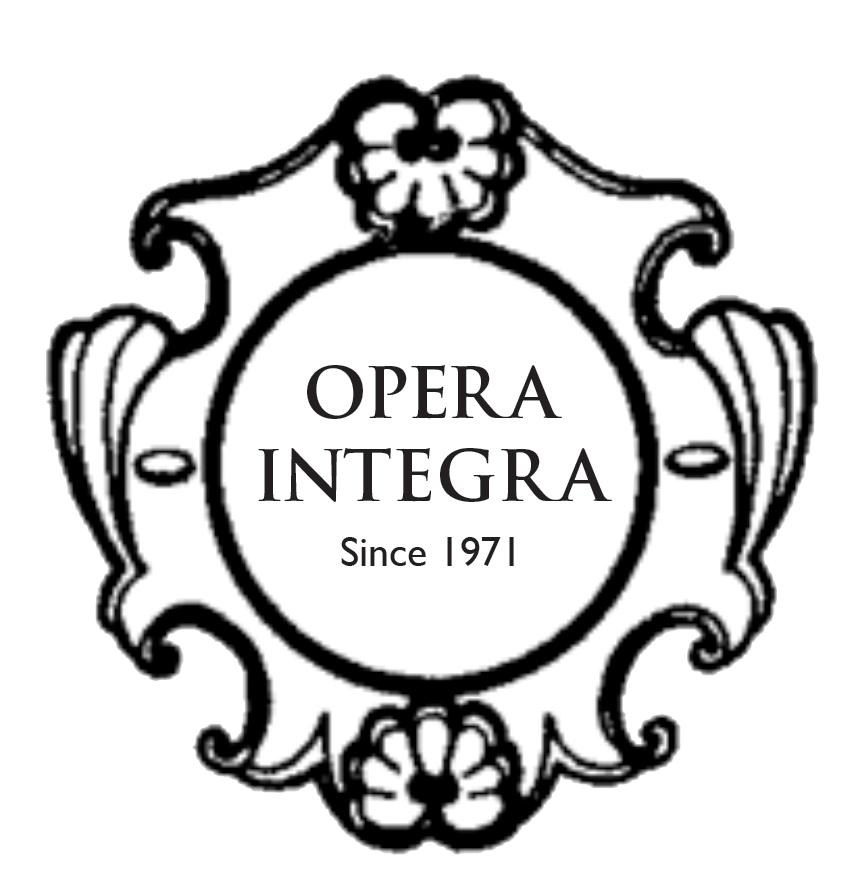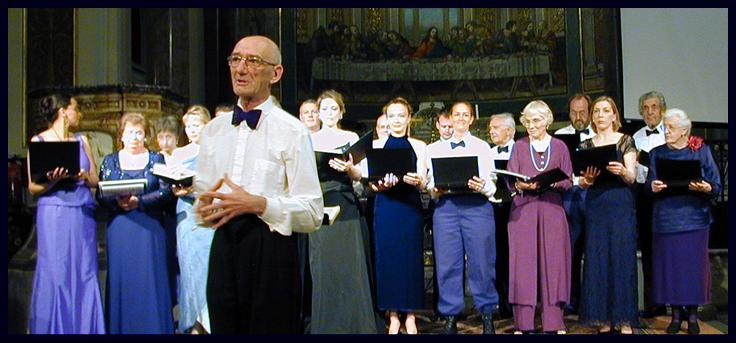By Brian Galloway
Opera Integra was founded in 1971, and like other small groups in London, began as an evening class in Adult Education. We rehearsed one evening per week for three hours during term-time. Any extra rehearsals were in the members’ own free time.
In my work as coach and accompanist I was surprised at the difficulty young student singers met when attempting to obtain experience in singing complete roles, especially in the original language. Apart from the main music colleges there was little chance to sing complete roles. The opportunity existed for singing oratorio and giving lieder recitals, but opera was quite different! In 1971 a nucleus of 14 singers, students and amateurs, joined my evening class. Our first venture was a simple concert of excerpts with piano.
A few months later, calling on the large pool of orchestral players in London, again both amateur and professional, we gave two concert performances of Die Zauberflöte. As a result the membership increased the following year, and we were able to give three performances in Italian of Le Nozze di Figaro with three different casts, but again a concert version, however with orchestra.
I felt it most important for our singers, especially those just out of college, to perform works which were suitable for voices that were still developing. A search in the BBC Music Library revealed an opera by Alessandro Scarlatti, existing in two acts; the third act was available on micro-film at the British Museum. I wrote out this act, and during rehearsal we were delighted that our choice offered such graceful music to sing and that the music’s charm was so refreshing. This opera, La Rosaura, was given with three different casts and broadcast by Radio London in 1974. The success of this venture led me to research for further baroque operas. We gave the first British performance of Cesti’s Orontea in early 1975. This work is now relatively familiar and has been quite often staged.
We followed this up a few months later with our first staged production: we gave four performances of Massenet’s Cinderella, with piano accompaniment. We followed this with staged performances, accompanied by orchestra, of Lortzing’s The Poacher (Der Wildschütz) and Così fan Tutte
In 1977 I chose another rarity, Balfe’s Satanella, to peform full-staged with orchestra. The partitur was lying in dust in a Liverpool library, and a young composer, Philip Taylor, re-orchestrated it with an eye on our financial resources. Unfortunately, the production was inadequate and the performances under-rehearsed, but a recording was made and is still available.
Satanella left the group with a financial deficit and depleted membership. I decided to try another baroque opera. By chance I managed to buy a score cheaply of Lully’s Cadmus et Hermione. More singers joined when this opera was announced, and the opera gave an admirable chance for the large cast to include most members in the group. We did this semi-staged in St. Paul’s Church, Covent Garden and we were well received by the critics.
During the previous years we had also performed Don Giovanni, Idomeneo and Così fan Tutte in concert to give singers the chance to learn roles in the normal repertoire.
It was now time to return to full staging. We began with Mozart’s Le Nozze di Figaro, double cast, and then gave two Purcell operas, The Faery Queen and King Arthur. We pruned the dialogue to provide a dramatic link to the musical numbers. Mozart’s La Clemenza di Tito, Gluck’s Orfeo Ed Euridice and the Leppard version of L’incoronazione di Poppea.
The financial resources of the group were a constant problem and, in spite of a small grant from the local town council, we had to provide the money for orchestra, scenery and costumes ourselves. We were obliged, because of the grant, to perform inside the local borough – Hammersmith. We were given free use of the town hall for a while, after which we had to pay for a. hall and find the money from our grant. For our next production, another Lully opera, the hire of the hall was £550, our grant £500!
Whilst rehearsing Lully’s Cadmus, a member of the orchestra suggested I look at two operas she had copied out from the original score as part of research for her thesis. Roland was one of these, and I chose that as being the more interesting and more suitable for the group. It meant copying out both the orchestral and vocal parts and everyone working from manuscript.
Brian Galloway, 2013

